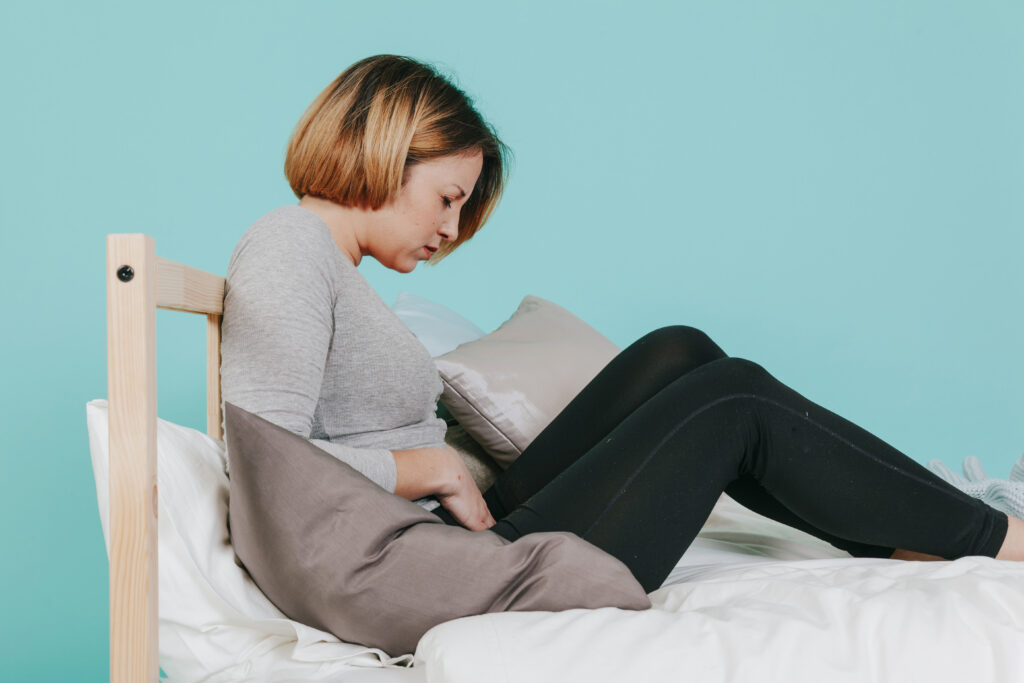Overview
Although being pregnant is a beautiful experience, there are many bodily changes and difficulties that come with it. Vaginal pain during pregnancy is one of the frequent, although alarming, problems that many expectant moms encounter. The degree and duration of this discomfort can vary, leaving many women searching for solutions. A successful pregnancy depends on knowing the signs, causes, and when to get help from a doctor. To keep you educated and ready throughout your pregnancy, we will examine the causes of vaginal pain in pregnancy and offer practical management advice in this post.
What causes vaginal pain during pregnancy?
Vaginal pain during pregnancy can be caused by various factors, some of which are normal and others that may require medical attention. Here are some common causes:
Hormonal Changes:
Pregnancy triggers significant hormonal shifts, particularly an increase in progesterone and relaxin. These hormones can cause increased vaginal sensitivity and pain, but they also aid in preparing your body for childbirth. Vaginal pain in early pregnancy can be a shared experience, often caused by hormonal changes, increased blood flow, or the stretching of ligaments as the body adjusts to support the growing baby.
Increased Blood Flow:
During pregnancy, blood flow to the pelvic area increases to support the growing baby. This can cause a sensation of heaviness, pressure, or pain in the vaginal region.
Stretching Ligaments:
As your uterus expands, it puts pressure on the supporting ligaments. This can cause sharp or aching pain, often referred to as round ligament pain, which may be felt in the lower abdomen or the vaginal area.
Yeast Infections:
The fungus Candida overgrows in the vagina, which is how yeast infections are brought on. Hormonal changes during pregnancy can upset the yeast and bacteria balance, resulting in an infection. Intense itching, redness, swelling, and a thick, white discharge are common symptoms of this illness. Significant vaginal pain and discomfort can be brought on by a yeast infection‘s irritation and inflammation, especially during urination or sexual activity.
Bacterial Vaginosis (BV):
Bacterial vaginosis may result from an imbalance in the usual bacteria that reside in the vagina. Changes in the vaginal environment during pregnancy may cause an overgrowth of dangerous bacteria, which results in BV. The symptoms include soreness and inflammation in the vagina, as well as a thin, grayish discharge that smells like fish. If you think you may have BV, it’s essential to see a doctor because it can raise your risk of preterm labor.
Urinary Tract Infections (UTIs):
Because of the pressure that the expanding uterus puts on the bladder, which can trap germs and cause an infection, urinary tract infections are more likely during pregnancy. UTIs can cause pain during urination, pelvic discomfort, and even pain in the vaginal area if the infection spreads. Other symptoms include frequent urination, a burning sensation, and cloudy or strong-smelling urine. Timely treatment is crucial since kidney infections can become more dangerous if left untreated.
Sexually transmitted diseases
STDs such as chlamydia, gonorrhea, herpes, and trichomoniasis can cause vaginal pain during pregnancy. These infections may result in symptoms like unusual discharge, sores, blisters, itching, burning during urination, and pelvic pain. STDs can have severe implications for both the mother and the baby, including the risk of premature birth or transmission to the baby during delivery. Early detection and treatment are critical to managing these conditions and ensuring a healthy pregnancy.
Pelvic Girdle Pain (PGP):
Sharp pain during pregnancy can also be caused by symphysis pubis dysfunction (SPD); PGP occurs when the joints in the pelvis become stiff or move unevenly. Pain in the pelvic region, especially the vagina, may result from this.
Cervical Changes:
Your cervix thins, dilates, and softens in preparation for giving birth. These modifications may cause vaginal pain or discomfort.
Varicose Veins:
Some pregnant women develop varicose veins in the vulva or vaginal area due to increased blood volume and pressure on the veins. This can cause pain or a throbbing sensation.
Sexual Activity:
Intercourse during pregnancy can sometimes lead to temporary vaginal pain, especially if the area is already sensitive due to hormonal changes or increased blood flow.
Preterm Labor:
In some cases, vaginal pain may be a sign of preterm labor. If the pain is accompanied by other symptoms such as contractions, back pain, or fluid leakage, it’s essential to seek medical attention immediately.
Constipation:
Due to hormonal changes that slow down the digestive system and the developing uterus pressing on the intestines, constipation is a typical problem during pregnancy. This may cause straining during bowel movements due to difficulty passing feces. The pelvic area may experience pain and discomfort from the pressure and straining, which occasionally spreads to the vaginal area. Hemorrhoids can result from extreme constipation, which can increase pain and suffering.
Pelvic Organ Prolapse:
Pelvic organ prolapse is a situation in which one or more pelvic organs, such as the bladder, uterus, or rectum, drop (prolapse) into the vaginal canal as a result of weakening muscles and tissues supporting the organs. This condition can cause a feeling of heaviness or pressure in the pelvic area. In more severe cases, it may lead to vaginal pain, discomfort, or even visible bulging from the vaginal opening. Due to their potential to weaken and strain the pelvic floor muscles, pregnancy, and childbirth are risk factors for pelvic organ prolapse. Medical intervention is often necessary to manage this condition and stop subsequent problems and symptoms.
“Prolapse may be a fact of life, unfortunately, But there are many things we can do to manage it, so it doesn’t have to be a permanent fact of life.” Say, Dr. Levin.
Understanding the underlying cause of vaginal pain during pregnancy is essential for appropriate management. While some discomfort is normal, persistent or severe pain should be discussed with your doctor to ensure the health and safety of both you and your baby.
How to relieve groin pain during pregnancy?
Relieving groin pain during pregnancy can be challenging, but several effective strategies can help alleviate discomfort:
Over-the-Counter (OTC) Medications:
Acetaminophen (Tylenol):
Safe for use during pregnancy to relieve mild to moderate pain, including groin pain.
Topical Antifungal Creams (for Yeast Infections):
Clotrimazole (Lotrimin) or Miconazole (Monistat): Used to treat yeast infections. These are applied directly to the affected area and help alleviate itching, irritation, and pain.
Topical Antiseptic Creams (for Irritation and Minor Infections):
Hydrocortisone Cream: This can help reduce mild irritation and inflammation in the groin area. Use sparingly and only as directed.
Vaginal Moisturizers:
Over-the-counter vaginal moisturizers can help relieve dryness and irritation in the vaginal area, reducing discomfort.
Prescription Medications:
Antibiotics (for Bacterial Vaginosis and UTIs):
- Metronidazole (Flagyl) or Clindamycin: Commonly prescribed to treat bacterial vaginosis. They help clear the infection and alleviate symptoms like pain, irritation, and unusual discharge.
- Amoxicillin or Cephalexin: Often prescribed for urinary tract infections during pregnancy. These antibiotics help eliminate the disease, reduce pain, and prevent complications.
Antiviral Medications (for STDs like Herpes):
- Acyclovir (Zovirax) or Valacyclovir (Valtrex): Used to treat herpes infections. By easing discomfort and reducing the likelihood of transmission to the unborn child, these drugs assist in lessening the intensity and frequency of outbreaks.
Antifungal Medications (for Severe Yeast Infections):
- Oral Fluconazole (Diflucan): Prescribed for more persistent or severe yeast infections. However, this is typically avoided in the first trimester, and your doctor will assess the risks and benefits.
Prescription Pain Relievers:
- In cases of severe pain, your family doctor may prescribe more vital pain relief options. These are generally used with caution during pregnancy and under close medical supervision.
Always consult your family doctor before starting any medication during pregnancy. Proper diagnosis is essential to ensure you receive the correct treatment, especially for infections like STDs or bacterial vaginosis.
Home Remedies
Exercise and Stretching:
Mild activities like pelvic tilts or pregnant yoga can strengthen the muscles surrounding the pelvis and decrease groin discomfort. Moreover, stretches that target the lower back, thighs, and hips can help release stress and pain.
Pelvic Support Belts:
Wearing a pelvic support belt can help stabilize your pelvis and reduce the strain on the groin area. These belts provide gentle compression and support, making it easier to move around without pain.
Warm Baths:
Soaking in a warm bath can help relax the muscles and reduce pain in the groin area. Be sure to moderate the water temperature, as overly hot baths are not recommended during pregnancy.
Rest and Elevation:
Resting and elevating your legs can reduce pressure on the pelvic area. Avoid standing or walking for long periods, especially if you’re experiencing significant discomfort.
Side-Sleeping Position:
Sleeping on your side with a pillow between your knees can help align your pelvis and reduce pressure on the groin area. The “SOS” (Sleep on Side) position is often recommended for pregnant women to improve comfort and circulation.
Apply Warm or Cold Compresses:
Depending on what feels better, you can apply a warm compress to relax the muscles or a cold pack to reduce inflammation and numb the pain in the groin area.
Maintain Good Posture:
Paying attention to your posture can help reduce the strain on your pelvic area. When standing, keep your back straight and your weight evenly distributed. When sitting, use a supportive chair and avoid crossing your legs.
Hydration and Nutrition:
Staying well-hydrated and eating a balanced diet can help reduce muscle cramps and tension, which can contribute to groin pain. Ensure you get enough calcium and magnesium, essential for muscle health.
Consult a Physical Therapist:
A physical therapist who specializes in pregnancy can offer personalized exercises and techniques to relieve groin pain. They can also teach you safe ways to move and exercise during pregnancy.
Avoid Heavy Lifting:
Avoid lifting heavy objects, as this can strain the muscles around the groin and worsen the pain. If you must lift something, bend your knees and keep the object close to your body.
Is it normal to have pain in the vaginal area while pregnant?
Yes, it is expected to experience pain in the vaginal area during pregnancy. This discomfort can result from various factors related to the natural changes your body undergoes while preparing for childbirth. Hormonal shifts, increased blood flow, and the stretching of ligaments as the uterus expands can all contribute to vaginal pain. While some discomfort levels are average, monitoring the pain’s intensity and duration is essential. If the pain is severe, persistent, or accompanied by other symptoms like bleeding or contractions, it’s necessary to consult with your healthcare provider to ensure everything is progressing safely.
When should I be worried about sharp pains during pregnancy?
Sharp pains during pregnancy can be concerning, but they are not always a sign of something serious. However, there are certain situations where you should seek medical attention:
- Severe or Persistent Pain: If the sharp pain is severe, lasts more than a few minutes, or doesn’t go away with rest, it could indicate a problem that needs immediate attention.
- Accompanied by Bleeding: If sharp pains are accompanied by vaginal bleeding, spotting, or unusual discharge, this could be a sign of a miscarriage, ectopic pregnancy, or placental issues. Seek medical help immediately.
- Pain with Fever or Chills: If you experience sharp pains along with a fever, chills, or other signs of infection, it’s essential to contact your healthcare provider, as this could indicate a disease that requires treatment.
- Pain with Contractions: If the sharp pain feels like contractions or is accompanied by regular tightening of the abdomen, it could be a sign of preterm labor. This is especially concerning if you are before 37 weeks of pregnancy.
- Dizziness or Fainting: If sharp pains are accompanied by dizziness, fainting, or shortness of breath, it could be a sign of a more severe condition, such as an ectopic pregnancy or preeclampsia.
- Pain in Specific Areas: Sharp pain localized to one side of your lower abdomen or pelvis, particularly in early pregnancy, could be a sign of an ectopic pregnancy, where the fertilized egg implants outside the uterus.
- Sudden, Intense Pain: If you experience sudden, intense pain that comes on very quickly, it could be a sign of a severe condition, such as placental abruption, where the placenta detaches from the uterine wall.
While many sharp pains during pregnancy can be attributed to regular changes in your body, it’s always better to err on the side of caution. If you need clarification or feel that something needs to be corrected, feel free to contact your healthcare provider for advice.
Consult a doctor
If you’re experiencing any concerning symptoms during pregnancy, such as sharp pains, persistent discomfort, or anything unusual, it’s essential to consult a healthcare professional.
- Severe or persistent pain that doesn’t go away with rest.
- Accompanied by vaginal bleeding or unusual discharge.
- Pain with fever or chills, indicating a potential infection.
- Pain with regular contractions, which could signal preterm labor.
- Sharp pain localized to one side, especially early in pregnancy.
- Sudden, intense pain that comes on quickly.
- Pain with dizziness, fainting, or shortness of breath.
FAQs about the vaginal pain during pregnancy
Feeling pressure in the pelvic area around 30 weeks of pregnancy is usual. This sensation is often due to the baby’s growing size and position as it moves lower into the pelvis in preparation for birth. The pressure can also be caused by the increased weight of the uterus and the loosening of ligaments as your body prepares for labor. However, if the pressure is severe, accompanied by pain, or associated with other symptoms like bleeding or contractions, it’s essential to consult your healthcare provider.
Pelvic pain can start at various stages of pregnancy, but it commonly begins in the second trimester and may continue or worsen into the third trimester. Due to hormonal changes and ligament stretching, pelvic pain can start as early as the first trimester for some women. The exact timing can vary depending on the baby’s position, the mother’s physical condition, and whether it’s a first or subsequent pregnancy.
The 3 Normal pains of pregnancy are as follows.
Round Ligament Pain: This is a sharp or jabbing pain in the lower belly or groin area, often during sudden movements. It is caused by the stretching of the ligaments that support the uterus.
Braxton Hicks Contractions: These are irregular, usually painless contractions that can start in the second or third trimester. They are sometimes called “practice contractions” as the body prepares for labor.
Back Pain: As the pregnancy progresses, the added weight and the shift in the center of gravity can cause strain on the lower back, leading to discomfort or pain. This is common, especially in the third trimester.







